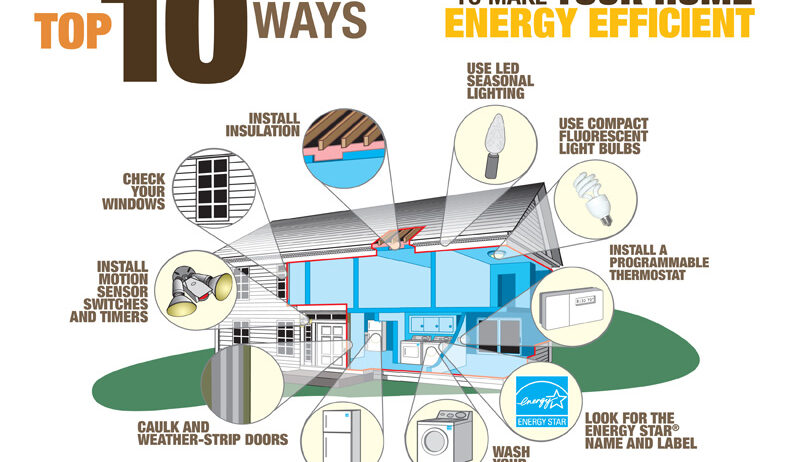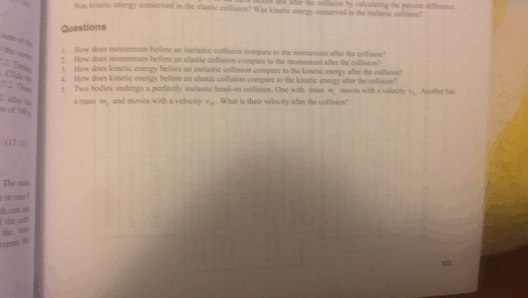Conserving energy in homes refers to employing methods and practices that reduce energy consumption while maintaining the same level of comfort and utility. This conscientious effort not only curtails energy bills but also contributes significantly to environmental sustainability. Households are major energy consumers; thus, their collective actions can have profound implications for energy conservation on a larger scale. The importance of embracing energy-saving techniques in our residences cannot be understated, as they serve dual purposes of enhancing personal fiscal responsibility and fostering a healthier planet.
Understanding energy conservation begins with recognizing the undeniable reality: energy usage profoundly affects our environment. The exponential rise in energy demand drives the need for fossil fuels, which contribute to pollution and climate change. If every household adopts energy-saving strategies, it can lead to a substantial reduction in greenhouse gas emissions, helping mitigate detrimental environmental impacts. Therefore, not only is conserving energy a noble pursuit; it is an imperative for those concerned about the Earth’s future.
To embark on the journey of conserving energy within the home, discrete yet impactful alterations in daily habits can yield remarkable results. Herein, we delve into practical strategies that can abate energy consumption without compromising comfort. These tips span categories such as energy-efficient appliances, home insulation, mindful usage, and lifestyle alterations.
Energy-Efficient Appliances
The appliances we utilize are significant contributors to our energy consumption. When it comes time to replace old devices, opting for energy-efficient models can profoundly reduce energy use. Look for ENERGY STAR certified products as they comply with rigorous energy efficiency guidelines. These appliances use substantially less energy compared to their standard counterparts, ensuring higher performance with a lower environmental footprint.
Refrigerators, washing machines, and dishwashers are where energy-efficient upgrades can make noticeable impacts. For instance, modern refrigerators benefit from advanced insulation and compressors, operating more efficiently. Similarly, washing machines with high energy ratings utilize less water and energy during cycling, highlighting that upgrading appliances is a savvy long-term investment.
Home Insulation
Proper insulation is another cornerstone of energy conservation. A well-insulated home withstands heat loss during winter and heat gain during summer, thereby reducing the reliance on heating and cooling systems. To achieve adequate insulation, focus on critical areas such as attics, walls, and crawl spaces, ensuring that gaps or leaks are sealed against drafts.
Consider employing insulating materials such as cellulose, fiberglass, or spray foam, as these not only trap heat effectively but are also often made from recycled materials. Furthermore, energy-efficient windows with double glazing can mitigate thermal exchange, allowing homeowners to maintain ideal indoor temperatures while minimizing energy expenditure.
Mindful Usage
Simple modifications in habitual energy usage can lead to substantial savings. Developing a routine of mindfulness regarding energy consumption transforms daily activities into opportunities for conservation. For instance, turning off lights when exiting a room or utilizing natural light during the day can illuminate the importance of conscious energy usage.
When it comes to heating and cooling systems, adjusting the thermostat by a mere degree can produce significant energy savings with minimal sacrifice in comfort level. During the cooler months, wear warmer attire indoors instead of cranking up the heat. Conversely, utilizing fans or opening windows during warmer months may reduce the need for air conditioning.
Smart Technology
Integrating smart technology into the home can enhance energy conservation by introducing automation and control. Smart thermostats, for instance, allow users to schedule heating and cooling to align with their daily routines, ensuring efficiency without necessitating constant adjustments. Similarly, smart plugs can manage the energy consumption of devices by enabling users to schedule operation times.
Furthermore, home energy monitoring systems provide insights into energy usage patterns, pinpointing areas prone to excessive consumption. By understanding these trends, homeowners can make informed decisions about where to implement changes. In essence, modern technology, when leveraged appropriately, can serve as a formidable ally in the quest for energy conservation.
Lifestyle Alterations
Turning towards lifestyle adjustments cultivates an awareness that extends beyond mere energy consumption. Incorporating habits such as reducing water heater temperatures to the optimal 120°F can yield twofold benefits. Not only does this modification reduce energy use, but it also prevents scalding and promotes safe usage. Additionally, employing low-flow showerheads and faucets can decrease water heating costs while conserving water resources.
Moreover, embracing outdoor living by utilizing natural light and fresh air can significantly lower energy requirements. Simple activities such as cooking outside or enjoying meals al fresco under shaded areas encourage energy savings while nurturing a deeper connection with nature. By fostering an outdoor lifestyle, households can enhance their quality of life while reducing their carbon footprint.
Community Engagement and Advocacy
Ultimately, energy conservation is not merely an individual responsibility; it is a collective endeavor. Engaging with the community through local initiatives, awareness campaigns, and energy efficiency programs can amplify the effect of personal conservation efforts. Organizations often provide resources, guidance, and incentives, demonstrating that community cohesion is vital for broader systemic changes.
By sparking discussions on energy conservation and sharing insights with others, individuals can plant the seeds of awareness throughout their communities. Hosting workshops, participating in neighborhood energy audits, or advocating for sustainable policies can create an environment where energy conservation becomes a shared value.
In conclusion, conserving energy in homes is essential for both personal and environmental well-being. The cumulative effects of small, deliberate actions can foster significant energy savings while promoting sustainable living practices. By implementing energy-efficient practices, optimizing usage, embracing smart technology, and engaging with the community, individuals can contribute to a collective effort toward a more sustainable and energy-conscious future.







